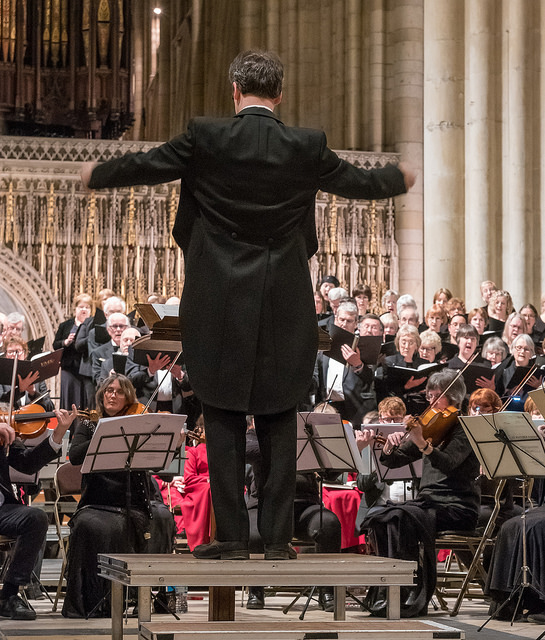opinion
Albert Einstein: human beings are part of a whole
In 1950 Albert Einstein wrote the following to a grieving father of an 11-year-old who had died from polio: “A human being is part of a whole, called by us the ‘Universe,’ a part limited in time and space. He experiences himself, his thoughts and feelings, as something separated from the rest – a kind of optical delusion of his consciousness. This delusion is a kind of prison for us…” Einstein believed that we have the power to free ourselves from the delusion that we are separate entities, when in truth we are all interwoven strands in an elaborate and infinite web.
Senior people keep climbing the career mountain
My executive coaching brings me into contact with senior people, in all sectors from health to energy, from media to engineering, from the civil service to international development, who have expended considerable effort, emotion, energy, focus, wellbeing and time with their families and growing children on continuously climbing up to the next rung of the career ladder. These are talented people who have the capacity to create stellar careers for themselves, driven by the conviction – and the proof – that they can keep succeeding. They keep climbing the mountain in front of them. From the top they see the next one. But some of them have a sense that something is missing.
A lack of what really matters
Their journeys are by definition personal, but in the race for the top the hidden peril is that, in Einstein’s terms, they experience themselves as separated from the rest. This makes them subject to an optical delusion of their consciousness, which risks creating a ‘prison’ inside a restricted perspective. At a certain point, some of them realise they feel restricted: they see their lives both as having become narrow and as failing to integrate what really matters to them. They start asking themselves a different kind of question: rather than ‘How can I get to the top?’, they ask ‘What’s my purpose in getting to the top?’
The sacrifices in getting to the top
Frequently this is prompted by a realisation of the imbalance between what it’s taken to get this far (and often, this fast) and the sacrifices they’ve made without ever properly considering the cost-benefit formula, or indeed ever being truly fullfilled. In the process of dedicating so much physical, emotional and intellectual effort to the journey, many of them have sacrificed or risked their health, and/or their relationships, including with partners, children and their wider circles of friends and family. They may wake up to the sudden and shocking realisation that they don’t know their children or that their connections to those closest to them have lost their depth. They realise that the meaning of the next career rung has become thin or diminished. They seem to have lost their place in the interwoven nature that characterises a fulfilled life.
How to connect to the whole
What is missing is clarity about how they ‘connect to the whole’. In other words, what their purpose is: the point of that relentless drive, and why it matters.
Coaching can enable the exploration of purpose
This is rich and fertile territory for coaching, which enables a context where an individual can, in a risk-free environment, explore, surface, clarify and articulate what meaning and purpose is for them and to become connected to the bigger whole. They can understand better where they belong, to convert these ideas into a practical realisation, and to create the kind of change which can better integrate what matters – from the practical (income, commitments and the rest) right through to what they may experience as the spiritual (a deep sense of who they are and where they fit). They can work out what they are willing to sacrifice and tolerate in return for what reward, including a reward that is something other than material.
Greater success
Interestingly, in my experience when they take this journey few of them leave their current roles: leaders I’ve coached on these topics tend to choose to stay in their roles, but to manage them – and their lives – differently.
Those who venture into such territory with their coach boost the likelihood of more satisfying and richer lives, more fulfilling careers, and a more sustainable return on investment for their employers. In short, greater success.
Photo by Clyde Robinson via Compfight
Seeking purpose - and being part of the whole
Albert Einstein wrote: "A human being is part of a whole, called by us the 'Universe,' a part limited in time and space. He experiences himself, his thoughts and feelings, as something separated from the rest - a kind of optical delusion of his consciousness. This delusion is a kind of prison for us…” This resonates for me as I coach talented senior people who create stellar careers. Some of them realise they feel restricted because their lives don’t integrate what really matters to them. They start asking 'What’s my purpose in getting to the top?’ rather than ‘How can I get to the top?’. This is rich and fertile territory for coaching, which enables an individual, in a risk-free environment, to explore, surface, clarify and articulate what meaning and purpose is for them and to become connected to the bigger whole.
Read more »Trapped in the detail
The remit of leaders is to develop and drive strategy, and to inspire its implementation. However, those in leadership roles can find themselves trapped in the detail of the operational. If they’re inappropriately involved in these areas, their teams will lack the bigger sense of direction, perspective and focus they need. The first important step for the leader is to realise that change needs to happen, and each will find their own way of implementing that change - perhaps through mindfully reviewing old loyalties to ideas and people, or surfacing wilful blindness, or speaking truth to power. Courage and resilience are fundamental to the change that's needed, along with self-awareness and systemic awareness.
Read more »Confidence on the coaching agenda
Confidence is the result of resolving or settling issues which may be related to identity, belonging, self-esteem, self-acceptance, resilience, the culture of the client’s organisation, or indeed countless other issues which interrelate, intersect and are interdependent. It manifests in a host of different ways, including effectiveness, efficiency, assertiveness, finding one’s voice, creativity, more balanced relationships, the resolution of conflict, respect and care for one’s own wellbeing, a reduction in stress, and a sense of personal peace. Leaders who constantly build the confidence of their people see that its relationship with the successful release of potential is direct and significant.
Read more »Burning out - and recovering health
I’m coaching two individuals who are on the verge of burning out. Both are hugely committed to their jobs and their organisations, both are talented, and both are high achievers. And no-one in their workplaces has looked beyond their stellar performance or considered what it costs them on a personal basis to deliver that level of performance. No-one has guided them back towards a healthy way of working. A first useful step for them is to engage with, and accept, the tricky task of facing the truth of what is happening. And the second step is a visit to the GP or to Occupational Health.
Read more »Why don't you hear me?
Talented people may feel a sense of isolation – lonely (nearly) at the top of their organisations - either because their perceived currency has diminished, or because it has been inconvenient to hear them, or because established hierarchies and power structures don’t allow their voices to be heard and their true value to be released. There is no simple, linear solution: the answer lies in a blend of self-awareness, mindfulness, systemic awareness, finding your voice, multiple perspectives to broaden your thinking, and listening to your intuition and your wisdom.
Read more »The uncertain and the unknown
Uncertainty is an inevitable part of both our personal lives and our organisational lives. Self-awareness, self-understanding, and awareness of the systems we’re part of give us a foundation of ‘the known’ in a context where much may be unknown. This, in turn, can give us a greater sense of safety and agency. In addition, the acceptance of what is – acceptance of the now – is perhaps the most powerful source of calm in the turbulence of uncertainty. Mindfulness – awareness that arises through paying attention, on purpose, in the present moment, non-judgementally - encourages focus and distances us from distracting thoughts and emotions. Not only is it relaxing, but it also nurtures a quiet confidence in the present moment.
Read more »Humility and the advancement of the executive career
Humility is the capacity to recognise that you – how ever junior to me – offer something (a talent, a skill, an insight) that I don’t have, and that in that sense you are important to my success as a leader, and to our success as a team and as an organisation. Indeed, I am dependent on you – no matter in how small a way - in the system that we are all part of. Humility can be a key - albeit surprising - factor in the advancement of executive careers. More and more organisations are recognising the value of – and are recruiting for – talent that demonstrates the ability to be humble.
Read more »Authority, courage and the leader
There's an interconnection between a leader stepping appropriately into their authority, on the one hand, and their courage, on the other. An effective leader understands their team and their client group, and is able to stay up to date with their needs, changes in those needs, and changes in the context and the system that impact on those needs: they are in touch with the ebb and flow – and act on it - without getting sucked in to the detail, and they can anticipate and prepare for changes. This takes courage.
Read more »Trust and transition
Trust is a fragile commodity, and is damaged when the psychological contract (even more than the formal contract) is not respected and/or there is abuse of goodwill, when people feel exploited, disrespected or manipulated, when they have a sense that there’s a hidden agenda, or when they start to question what they had taken for granted about integrity. The outcome may be reduced motivation, performance that is restrained, constrained or diminished, and commitment that is short-lived or superficial. When trust is justified, discretionary effort, engagement and motivation are sustained and built. This is all highly relevant at a time of transition. As a leader you ignore the impact of trust at your peril.
Read more »Leading through systemic complexity
The task of leadership in our time is increasingly often described as complex – and leaders are often challenged as to how to deal with it. Leaders whom I work with arrive sooner or later at the realisation that question(s) they bring to coaching are either obviously or surprisingly complex, requiring a holistic approach to address them. Those whose behavioural pattern is to rush towards quick answers can find the exploration of what’s actually happening to be confronting, frustrating, uncomfortable – and rich in learning. In complexity what matters is strengthening relationships between people, recognising and understanding influences and forces rather than exerting control, accepting emergence rather than being focused on planning for outcomes, and a readiness to work with boundaries and perspectives rather than a sense of objective truth.
Read more »











